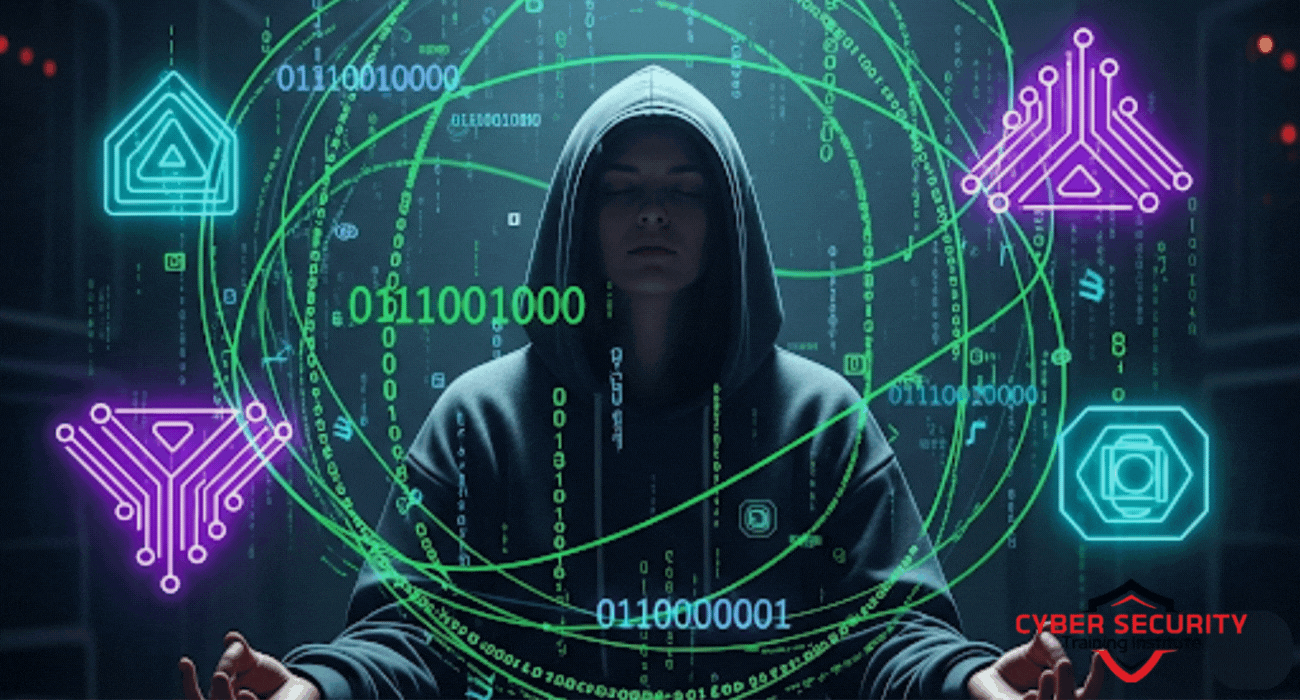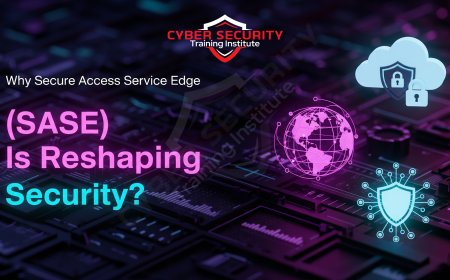When Hackers Meditate | How Cyber Criminals Use Mindfulness to Outwit Systems
In a world where technology evolves at breakneck speed, cyber criminals are finding unexpected allies in ancient practices. Mindfulness, often associated with calm and clarity, is being harnessed by hackers to sharpen their focus, enhance their creativity, and outsmart even the most sophisticated security systems. This blog post explores the surprising intersection of meditation and cybercrime, diving into how hackers use mindfulness techniques to plan attacks, bypass defenses, and stay one step ahead. Whether you’re a cybersecurity enthusiast or just curious about this unusual pairing, read on to discover how the art of staying present is reshaping the dark side of the digital world.

Table of Contents
- The Rise of Mindful Hacking
- What Is Mindfulness, and Why Hackers Care
- How Hackers Use Mindfulness in Cyber Attacks
- Case Studies: Mindfulness in Action
- The Psychology Behind Mindful Hacking
- Countering Mindful Hackers: What Organizations Can Do
- Conclusion
- Frequently Asked Questions
The Rise of Mindful Hacking
Cybercrime has evolved far beyond the stereotypical image of a lone hacker in a dark room, typing furiously. Today’s cyber criminals are strategic, patient, and highly disciplined. Reports from cybersecurity firms indicate a growing trend: hackers are adopting mindfulness practices to enhance their mental clarity and focus. By training their minds to stay calm under pressure, these individuals can execute complex attacks with precision. This section explores how the digital underworld is embracing mindfulness, a practice rooted in ancient traditions, to gain a modern edge.
Mindfulness isn’t just for wellness gurus or corporate retreats. Hackers are using techniques like meditation and deep breathing to stay sharp during long coding sessions or high-stakes operations. The result? A new breed of cyber criminals who are as mentally agile as they are technically skilled.
What Is Mindfulness, and Why Hackers Care
Mindfulness is the practice of staying fully present in the moment, aware of your thoughts, feelings, and surroundings without judgment. Popularized in the West through meditation apps and wellness programs, it’s rooted in Buddhist traditions but has universal appeal. For hackers, mindfulness offers practical benefits:
- Enhanced Focus: Staying present helps hackers concentrate on intricate tasks like writing malicious code or analyzing system vulnerabilities.
- Stress Management: High-stakes hacking operations, like breaching a secure network, can be nerve-wracking. Mindfulness keeps hackers calm and collected.
- Creative Problem-Solving: A clear mind fosters innovative thinking, allowing hackers to devise new ways to bypass security measures.
By practicing mindfulness, hackers can maintain a laser-like focus, even when facing complex challenges or tight deadlines. It’s a mental edge that makes them formidable opponents.
How Hackers Use Mindfulness in Cyber Attacks
Hackers apply mindfulness in various stages of their operations. Here’s a breakdown of how they integrate these techniques:
| Stage of Attack | Mindfulness Technique | Purpose |
|---|---|---|
| Reconnaissance | Focused Meditation | Sharpen attention to gather detailed information about a target system without distraction. |
| Planning | Visualization | Mentally rehearse attack steps to anticipate challenges and refine strategies. |
| Execution | Breath Control | Stay calm during high-pressure moments, such as exploiting a vulnerability in real-time. |
| Evasion | Mindful Awareness | Remain alert to detect and avoid security countermeasures or monitoring systems. |
By integrating mindfulness into these stages, hackers can approach their work with a level of discipline that mirrors professional athletes or chess grandmasters. This structured approach helps them execute attacks with precision and avoid costly mistakes.
Case Studies: Mindfulness in Action
While specific details about individual hackers are often scarce due to the clandestine nature of their work, anonymized case studies from cybersecurity reports highlight how mindfulness plays a role in cybercrime:
- Case Study 1: The Patient Phishing Attack
A hacker group used mindfulness techniques to stay patient during a year-long phishing campaign. By meditating daily, they maintained focus while crafting convincing emails to trick employees at a major corporation. Their calm demeanor helped them avoid detection, leading to a successful breach that netted sensitive data. - Case Study 2: The Zero-Day Exploit
An individual hacker used visualization to map out a zero-day exploit— a previously unknown vulnerability in software. By mentally rehearsing each step, they executed the attack flawlessly, bypassing a Fortune 500 company’s defenses in under an hour. - Case Study 3: The Ransomware Mastermind
A ransomware operator practiced breath control to stay composed during negotiations with victims. This mental clarity allowed them to manipulate conversations, maximizing payouts without succumbing to pressure.
These examples show how mindfulness can transform a hacker’s approach, making them more effective and harder to catch.
The Psychology Behind Mindful Hacking
Why does mindfulness work so well for hackers? The answer lies in psychology. The human brain is wired to wander, especially under stress. Mindfulness trains the brain to stay present, reducing distractions and enhancing decision-making. For hackers, this means:
- Better Emotional Regulation: Hackers face high-pressure situations, like evading law enforcement or meeting tight deadlines from clients on the dark web. Mindfulness helps them stay calm and avoid rash decisions.
- Improved Cognitive Flexibility: A mindful brain can switch between tasks—like coding, analyzing data, or communicating with accomplices—without losing focus.
- Heightened Awareness: Mindfulness enhances situational awareness, allowing hackers to notice subtle cues in a system’s behavior that might indicate a security trap.
Neuroscientific studies support these benefits. For example, research shows that regular meditation increases gray matter in the prefrontal cortex, the brain region responsible for planning and problem-solving. Hackers leveraging these cognitive advantages can outthink their opponents with ease.
Countering Mindful Hackers: What Organizations Can Do
If hackers are using mindfulness to gain an edge, how can organizations fight back? Here are some strategies:
- Employee Training: Educate staff about sophisticated phishing techniques that mindful hackers use, such as highly personalized emails.
- Advanced Monitoring: Deploy AI-driven security systems that can detect subtle anomalies in network behavior, catching hackers before they strike.
- Stress-Test Defenses: Regularly simulate attacks to identify vulnerabilities, mimicking the patient and focused approach of mindful hackers.
- Promote Cybersecurity Mindfulness: Encourage cybersecurity teams to adopt mindfulness practices themselves, enhancing their focus and resilience against attacks.
By staying proactive and adopting a similarly disciplined mindset, organizations can level the playing field against mindful hackers.
Conclusion
The convergence of mindfulness and cybercrime is a fascinating, if unsettling, development in the digital age. By harnessing the power of focus, emotional regulation, and creative thinking, hackers are becoming more formidable than ever. However, understanding their tactics opens the door to better defenses. Organizations and individuals can learn from this trend, adopting proactive measures and even mindfulness practices to stay one step ahead. As technology continues to evolve, the battle between hackers and defenders will increasingly become a test of mental agility as much as technical skill. Stay vigilant, stay informed, and perhaps, take a moment to breathe deeply yourself.
Frequently Asked Questions
What is mindfulness in the context of hacking?
Mindfulness is the practice of staying fully present and focused, which hackers use to enhance concentration, manage stress, and solve complex problems during cyber attacks.
How do hackers learn mindfulness?
Hackers may learn mindfulness through online resources, meditation apps, or self-study, adapting techniques like meditation or breath control to their work.
Why would hackers use meditation?
Meditation helps hackers stay calm, focused, and creative, enabling them to execute precise attacks and handle high-pressure situations effectively.
Can mindfulness make someone a better hacker?
Yes, mindfulness improves focus, emotional regulation, and problem-solving, all of which can enhance a hacker’s ability to plan and execute attacks.
What are some mindfulness techniques hackers use?
Common techniques include focused meditation, visualization, breath control, and mindful awareness to stay present during complex tasks.
Is mindfulness only for illegal hacking?
No, mindfulness can benefit ethical hackers and cybersecurity professionals, helping them stay sharp and resilient in their work.
How does mindfulness help in phishing attacks?
Mindfulness allows hackers to craft convincing phishing emails with patience and precision, avoiding mistakes that could trigger suspicion.
Can organizations use mindfulness to fight hackers?
Yes, cybersecurity teams can use mindfulness to enhance focus, improve decision-making, and stay calm during high-stakes incidents.
What is a zero-day exploit?
A zero-day exploit is an attack that targets a previously unknown vulnerability in software, often before developers can create a fix.
How does visualization help hackers?
Visualization allows hackers to mentally rehearse attack steps, anticipate challenges, and refine their strategies before execution.
Are there specific meditation apps hackers use?
There’s no evidence of specific apps, but hackers likely use popular platforms like Headspace or Calm, or learn from freely available resources.
Can mindfulness prevent hackers from making mistakes?
Yes, mindfulness reduces distractions and impulsive decisions, helping hackers avoid errors during complex operations.
How common is mindful hacking?
While exact numbers are unknown, cybersecurity reports suggest a growing trend of hackers using mindfulness to enhance their skills.
Does mindfulness make hackers harder to catch?
Yes, by staying calm and focused, mindful hackers can better evade detection and cover their tracks effectively.
What role does stress management play in hacking?
Stress management helps hackers stay composed during high-pressure tasks, like breaching secure systems or negotiating ransoms.
Can AI detect mindful hackers?
AI-driven security systems can detect anomalies in network behavior, but mindful hackers’ precision makes them harder to spot without advanced tools.
How can employees protect against mindful hackers?
Employees should be trained to recognize sophisticated phishing attempts and follow strict security protocols to minimize risks.
Is mindfulness training common in cybercrime groups?
There’s no definitive data, but anecdotal evidence suggests some organized groups encourage mindfulness to boost performance.
Can mindfulness be used ethically in cybersecurity?
Absolutely, ethical hackers and defenders can use mindfulness to improve focus, resilience, and strategic thinking in their roles.
How can I learn more about cybersecurity and mindfulness?
Explore online courses on platforms like Coursera or Udemy for cybersecurity basics, and try meditation apps or books for mindfulness practices.
What's Your Reaction?
 Like
0
Like
0
 Dislike
0
Dislike
0
 Love
0
Love
0
 Funny
0
Funny
0
 Angry
0
Angry
0
 Sad
0
Sad
0
 Wow
0
Wow
0















